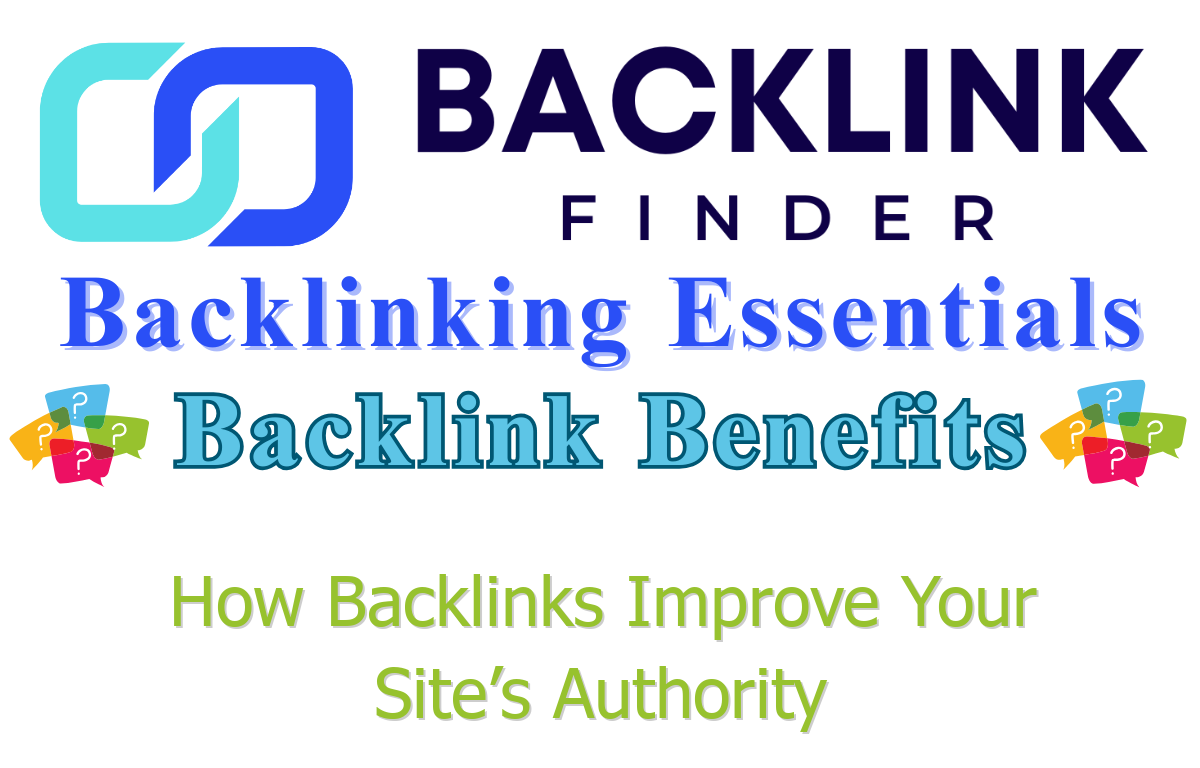How Backlinks Improve Your Site’s Authority

Picture your website as a new kid in school. You’ve got great stories (content), but nobody knows you yet. How do you become the cool kid everyone trusts? Backlinks. These are like popular kids vouching for you, telling Google your site is worth noticing. If you’re new to SEO, don’t sweat it—let’s unravel how backlinks boost your site’s authority in a way that’s simple, fun, and actionable. Ready? Let’s jump in!
What Are Backlinks, Anyway?
A backlink is when another website links to yours. It’s like a digital high-five, saying, “Hey, this site has something valuable!” Search engines like Google see these links as votes of confidence. The more quality votes you get, the more authoritative your site appears.
Think of Google as a judge in a talent show. Backlinks from reputable sites (like a news outlet or a well-known blog) carry more weight than links from sketchy corners of the internet. It’s all about trust.
- Example: A local gym’s blog gets linked by a fitness magazine’s article on “Best Workout Tips.” That link signals to Google the gym’s site is legit.
- Stat: Sites with high-quality backlinks rank higher on Google’s first page 95% of the time, per Ahrefs data.
Why Does Authority Matter?
Authority in SEO is like street cred—it tells search engines your site is a go-to source. Higher authority means better rankings, more traffic, and a bigger spotlight for your content. Without it, even awesome pages can get buried on page 10 of Google (yawn).
Backlinks are a huge piece of this puzzle. Google’s algorithm, especially its PageRank system, uses links to measure how trustworthy and relevant your site is. More quality backlinks = more authority = higher chances of ranking for keywords like “best coffee shop” or “yoga classes near me.”
How Backlinks Boost Authority
Let’s break down the magic of backlinks with a clear picture:
- Signal Trust: A link from a respected site (say, Forbes or a university) tells Google your site is credible. It’s like getting an endorsement from a celebrity.
- Drive Referral Traffic: Backlinks bring visitors from other sites. If those visitors stick around, Google notices your site’s value, boosting authority further.
- Expand Relevance: Links from sites in your niche (e.g., a pet blog linking to your dog training site) show Google you’re relevant to specific topics.
Here’s an analogy: Backlinks are like bridges connecting your site to the internet’s bustling cities. The stronger and more numerous those bridges, the more Google sees you as a hub worth visiting.
Quality vs. Quantity: A Beginner’s Guide
Not all backlinks are created equal. A single link from a high-authority site can outweigh 100 links from low-quality ones. Focus on quality to build real authority.
- Do this: Aim for links from sites with strong reputations, like industry blogs or local news. Tools like Backlink Finder, with its 400,000+ marketplace listings, make it easy to find guest post opportunities or keyword-optimized backlinks to grow your authority the right way.
- Avoid this: Spammy links from shady directories or paid link farms. These can hurt your rankings—Google’s smarter than that!
Pro tip: Check a site’s authority using free tools like Moz’s Domain Authority checker before chasing a backlink. Aim for sites with a score above 30 to start.
Busting a Myth
Some beginners think more backlinks always mean more authority. Wrong! Google penalizes sites with unnatural link patterns, like buying 1,000 links overnight. Focus on earning a few quality links naturally—it’s safer and more effective.
Backlinks are still king for SEO, but quality trumps quantity every time. Earn links from trusted sites, and your authority will soar! #SEO #LinkBuilding— Marie Haynes (@marie_haynes) April 15, 2021
Marie’s spot-on—quality backlinks are your ticket to authority. Her advice reinforces why chasing spammy links is a rookie mistake.
Simple Steps to Start Building Backlinks
Excited to boost your site’s authority? Here’s how beginners can get started:
- Create Link-Worthy Content: Write a blog post that solves a problem, like “10 Tips for Beginner Runners.” Great content naturally attracts links.
- Reach Out: Email bloggers in your niche and pitch a guest post. Offer value, like a fresh angle on a topic they cover.
- Leverage Local: Ask local businesses or community sites to link to you. For example, a café could get a link from a “Best Local Eats” roundup.
Start small—one quality backlink a month can make a difference. Patience is key!
Common Pitfalls to Dodge
Beginners, steer clear of these traps:
- Ignoring Relevance: A backlink from a random site (like a tech blog linking to your bakery) confuses Google. Stick to your niche.
- Neglecting Anchor Text: Use descriptive link text (e.g., “gluten-free recipes” instead of “click here”) to clarify what your page is about.
- Forgetting to Track: Use Google Search Console to monitor your backlinks. Are they helping or hurting? Stay on top of it!
Further Reading
Want to level up your backlink game? Explore these beginner-friendly resources:
- Moz’s Guide to Backlinks – A simple intro to how links work in SEO.
- Ahrefs’ Link Building Guide – Practical tips for earning quality links without stress.
- Search Engine Land: Why Backlinks Matter – Real-world insights on authority and rankings.

